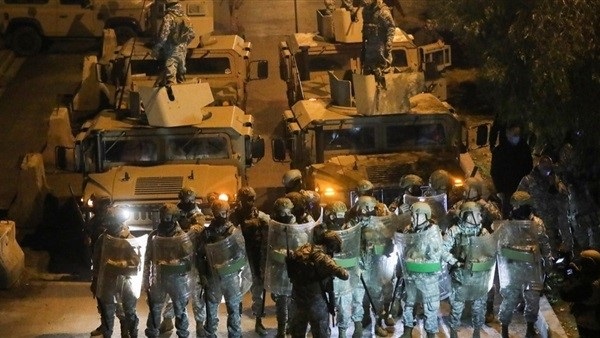Tripoli's clashes have implications for Libya's future

Libyan capital Tripoli
has witnessed bloody clashes in the past few days.
These clashes gave
insights into the crisis suffered by Libya. They also revealed control by terrorist
militias on the Libyan scene.
In a way, this control
stands behind the failure of Libyan institutions to impose security and
stability in this country.
Nightmare
The aforementioned clashes
confirm that terrorist groups have become a nightmare for the Libyan people
because of the frequent violent incidents between them, especially in the light
of foreign intervention and the presence of mercenaries.
All these factors have become
an obstacle to ending the violence, finding political solutions and moving forward
towards the implementation of the roadmap.
They also make the
situation and the future of Libya uncertain, in general.
International relations
specialist, Gamal Abdel Hamid, said violent confrontations and clashes taking
place in Libya would restore the international and regional momentum of the
Libyan file.
"This will open
the door for new arrangements to prevent the country from sliding into a new
civil war," he told The Reference.
"This is especially
true with the recent clashes leaving hundreds of people dead and injured
behind," he added.
He explained that the
clashes in Tripoli had raised international and regional concern.
This, he said, was why the
UN mission to Libya took the initiative to call for an immediate cessation of
violence and an end to violent clashes between parties to the conflict.
He added that the embassies
of the US, Britain and France in Tripoli demanded an immediate suspension of the
clashes.
"They also called
for preserving the gains of the past period and the state's stability," Abdel
Hamid said.
He stressed that these
clashes are not the first between the two parties.
"They will not be
the last either," he warned.
Abdel Hamid referred to
previous confrontations between the same parties, the latest of which was in
May 2023 when the Deterrence Service arrested one of the leaders of Brigade 444.
He said these clashes
were the most violent since the beginning of 2023.
Armed elements, he
said, used heavy and medium weapons, something that refutes remarks made by
Prime Minister of the Libyan National Unity Government Abdul Hamid Dbeibeh about
his ability to extend his control over the Libyan scene.
"These
confrontations also revealed the fragility of Libya's stability," Abdel
Hamid said.





